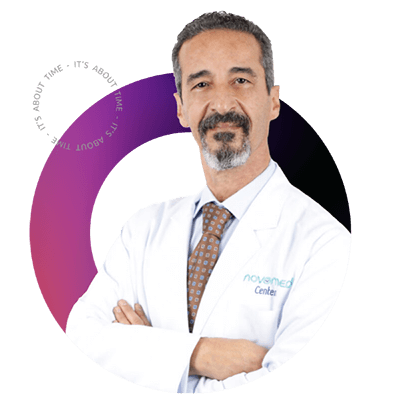Overview
Vulvar varicosities refer to the varicose veins (enlarged, twisted veins) that commonly appear in or around the vulva during pregnancy and go away around 6 weeks after giving birth. These veins can appear without causing any symptoms, but in some cases, they cause discomfort.
Women who develop vulvar varicosities during one pregnancy may develop them again during the next. With each pregnancy, the veins may become worse or more painful. Several treatments and procedures can be done to treat vulvar varicosities.
What are the symptoms of vulvar varicosities?
Other than bulging veins, vulvar varicosities are not necessarily accompanied by symptoms. For some women, these veins can cause a feeling of pressure, discomfort, fullness, or pain in the vulvar area. The area can get more painful after intercourse, physical exercise, or standing too long. The perineum (the area between the vagina and the anus) can also be affected by varicose veins.
What are the causes of vulvar varicosities?
Vulvar varicosities develop when the veins in your vulva struggle to circulate blood and keep a consistent blood flow. They can also develop during pregnancy because of hormonal changes or strain imposed on a large vein called the inferior vena cava.
Varicose veins run in families, therefore women with close relatives who have varicose veins may develop them as well. Vulvar varicosities can also occur in women who have varicose veins elsewhere in their bodies.
The best way to determine the cause of your vulvar varicosities is to schedule a consultation with a vein specialist.
What happens during my consultation for vulvar varicosities?
A visual examination is usually enough for the doctor to diagnose vulvar varicosities; however, they may do some tests to rule out any underlying problems and check if you have varicose veins elsewhere in your body. They will also explain your options for treatments and procedures. If you think you might have vulvar varicosities, you should see a doctor and get an accurate diagnosis.
How are vulvar varicosities treated?
Because vulvar varicosities tend to go away on their own after giving birth, treatment primarily focuses on managing symptoms at home. There are a few things you can do to keep your veins from getting worse, such as avoiding sitting or standing for too long, changing positions regularly, and drinking plenty of water. To relieve pain from vulvar varicosities, our doctor will recommend that you apply cold compresses to your vulva and wear supportive pregnancy underwear for your pelvic area. However, if your veins do not dissolve on their own after childbirth or become painful, you should consult a doctor to have them removed.
Different procedures can be performed under general anesthesia to remove them, such as:
- Vein embolization: A catheter is used to seal damaged veins using a coil.
- Ligation: Tiny cuts are made in your skin to access the veins and remove small parts of them.
- Sclerotherapy: A solution is injected into the veins that cause them to close and disappear.
Schedule your consultation at Novomed today!
If your vulvar varicosities are affecting your quality of life, you should consult a doctor for a diagnosis and assurance that they will eventually go away.
Our highly qualified doctors can help you manage your symptoms and provide various treatment options.
Book your consultation today by calling toll-free 8006686 or clicking the live chat icon at the bottom of the screen.


























